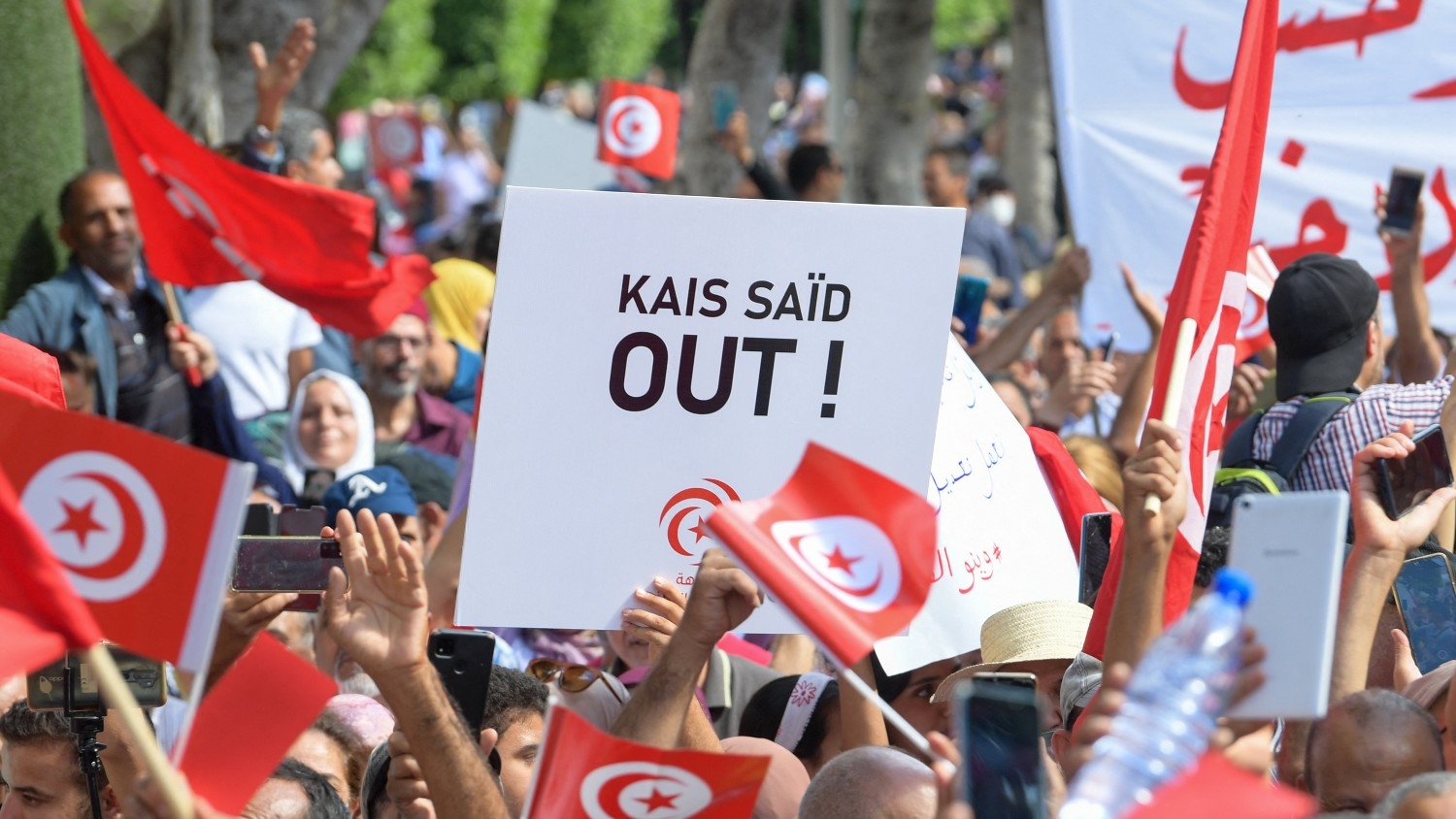Top lawmakers urge US to press G7 to condition Tunisia aid

Two top US senators have sent a letter to the Biden administration calling for making aid to Tunisia conditional, in coordination with G7 nations, to tackle the "erosion of democracy" in the North African country.
Democrat Bob Menendez and Republican Jim Risch, the two leaders of the Senate Foreign Relations Committee, sent the letter to Secretary of State Antony Blinken, saying that unless the US and other countries put pressure on Tunisia to restore democratic institutions, "Tunisia will slide into further instability".
"We urge you to coordinate with our G7 partners to condition assistance on unambiguous democratic reform benchmarks," the two lawmakers wrote in the letter.
"Further, as the United States evaluates a range of tools to address Tunisia’s democratic backsliding, we ask that you consider sanctions on entities that have engaged in corruption, undermining Tunisian economic and political stability for their own personal benefit.”
The Biden administration proposed in its annual budget a 50 percent cut to assistance to Tunisia - a $70m cut to military aid and a $40m reduction in economic aid - in response to the moves made by Tunisian President Kais Saied to freeze parliament and consolidate power.
Stay informed with MEE's newsletters
Sign up to get the latest alerts, insights and analysis, starting with Turkey Unpacked
"However, many members of the G7 have not conditioned assistance on democratic reforms in the same way as the United States, resulting in uneven or contradictory messages to Tunis," the letter said.
"The G7 must speak with a unified voice and condition assistance on clear democratic reform benchmarks."
Saied has ruled by decree since last summer, when he brushed aside parliament and the democratic 2014 constitution in a power grab his opponents labelled a coup, moving towards "one-man rule" and vowing to remake the political system.
In May 2021, Middle East Eye revealed that a secret document was being circulated recommending Saied invoke Article 80 of the constitution and seize control of the country, citing emergency powers.
In late July, Saied did exactly that, saying that the coronavirus and economic situation had become so dire that he needed to freeze parliament and dismiss the government, as well as launch an anti-corruption drive.
In addition to freezing parliament, he has enacted several controversial measures including shutting down the country's independent anti-corruption body and sidelining the national election authority.
In early February this year, he dissolved the Supreme Judicial Council and granted himself control over the selection and promotion of judges.
US lawmakers have repeatedly raised concerns with the Biden administration over the situation in Tunisia, calling for concrete actions including the diverting of aid to civil society groups rather than the government, and leveraging the ongoing talks between Tunis and the International Monetary Fund over a potential bailout for the country.
After Tunisia's new constitution was approved with a turnout of only 30.5 percent, Blinken had raised concerns that it "could weaken Tunisia's democracy and erode respect for human rights and fundamental freedoms".
The comments were met with outrage by Saied's government, and as a result, Tunisia summoned the US charge d'affaires for a dressing down.
However, experts have previously told MEE that Washington's response to the moves made by Saied have largely been reactive, and without a proper policy framework, the Tunisian leader will have an easier time continuing to dismantle the progress made in the nation's nascent democracy.
Middle East Eye delivers independent and unrivalled coverage and analysis of the Middle East, North Africa and beyond. To learn more about republishing this content and the associated fees, please fill out this form. More about MEE can be found here.





